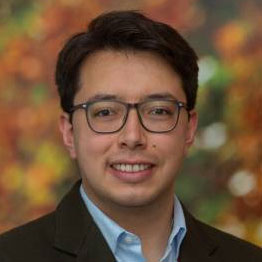26/02/2024
Published in
The Conversation Spain
Juan Diego Molina Méndez
researcher from Institute for Culture and Society, University of Navarra
 Since its arrival Nayib Bukele to the presidency of El Salvador promising refund security to the Central American country, the popularity of his proposals is growing like wildfire among citizens and politicians in the region.
Since its arrival Nayib Bukele to the presidency of El Salvador promising refund security to the Central American country, the popularity of his proposals is growing like wildfire among citizens and politicians in the region.
For countries with young democracies and weak economies, the "mano dura" (iron fist) approach to security proposal promises quick results in controlling organized crime. This approach presents a great danger by pitting security and democratic principles, such as the rule of law and respect for due process, against each other. The experience of many Latin American countries with 20th century dictatorships should serve as a serious warning to these societies.
The democratic transitions at the end of the last century opened the door for countries that had been battered in equal parts by Marxist guerrillas and dictatorships to offer security and prosperity to their people. The precarious democratic culture of the political class and citizens allowed the emergence of messianic figures who won votes with promises of development, prosperity and security. Time has shown that there is no fast track to the construction of prosperous states; on the contrary, express processes seem to have strong setbacks after years.
When the leader of the Choneros gang escaped from prison early last January, the eyes of the world turned to Ecuador, a country that within its neighborhood had remained seemingly distanced from the dynamics of violence. The contrast with neighboring Colombia and Peru seemed to mark it as an exception. However, the existence of profound inequalities and insufficient social policies led to the formation of criminal gangs that in the early years of the century began to operate.
The election of Rafael Correa in 2007 seemed to mean greater attention to the country's social problems. However, in order to solve the gang problem topic he ended up legalizing them, thus disguising a much deeper problem.
Looking towards El Salvador
In this context of growing insecurity, many politicians in Latin America are looking to El Salvador. This country, back in 2015, had the sad reputation of being one of the most dangerous countries in the world, with more than 100 murders per 100,000 inhabitants.
Bukele's arrival seems to have brought a change in this sense. The maras Salvatrucha and M-18 led the country to a status limit, which seemed to end with the arrival of Nayib Bukele, an outsider, a rockstar of politics, young and daring, at least in appearance.
However, the president has even used the army to pressure the Assembly to approve a loan that would finance his security policies. Bukele and his party have also C in the Assembly for collective trials, overriding individual rights and legal security.
The image that the Salvadoran government tries to present abroad sample the country as a safe place, as well as a mecca for surfing and cryptocurrencies. However, if the factors underlying the violence of a few years ago are evaluated in depth, we find that they are still present.
In the midst of the current election campaign, Bukele's government's negotiations with the Jalisco Cartel - New Generation, seeking his partnership to recapture a gang leader who had been released after the ceasefire agreed between the government and the Salvatruchas, have come to light. The Salvadoran president's hardline policies may be effective in the short term, however, in order to provide quicker results, he has crossed a red line by negotiating with criminals.
An effective image in the public eye
The cases of Ecuador and El Salvador illustrate the urgency with which politicians often act in order to offer an effective image to the public. However, these policies are not sustainable in the long run. To consolidate the institutions of a state requires time, resources and long-term vision, and these ingredients cannot be substituted.
There are very few cases of countries that have managed to radically change their course in a short period of time, such as Chile or Costa Rica. However, the current status of both nations sample also shows that these early successes can also suffer major setbacks if they are not maintained.
It is really dangerous that the only solutions to the problems of insecurity in Latin America are based on the iron fist. In desperate situations like the one Ecuador is going through today, thinking in the long term can be desperate, but the lessons that history teaches us should not be thrown on deaf ears.
The application of express measures that focus their efforts on security while forgetting democratic principles can end up plunging countries into the quagmire of criminality and insecurity.
We would do well to focus on building a culture that ensures lasting freedom, security and prosperity. These desired goals will never be achieved through policies that are only a stopgap for the problems affecting the region.
This article was originally published in The Conversation. Read the original.
![]()
